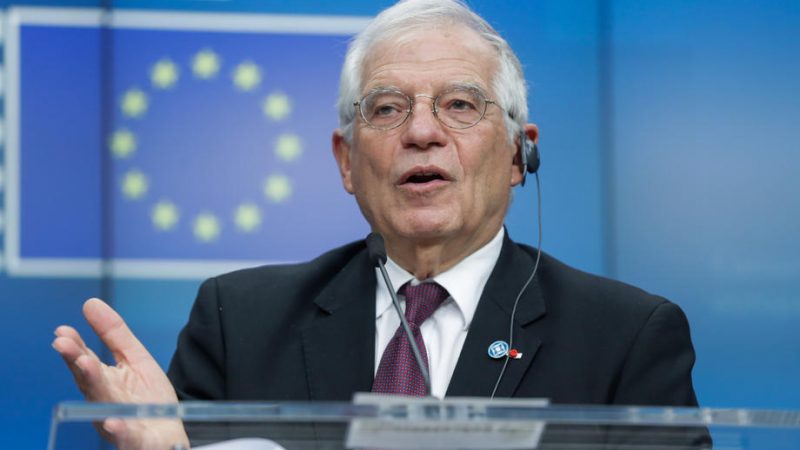Alwaght- EU foreign policy chief Josep Borrell said on Monday the EU will extend indefinitely the time limit to resolve disputes in Iran deal to avoid having to go to the United Nations Security Council or triggering new sanctions.
"We are all in agreement not to go directly to a strict time limit which would oblige us to go to the United Nations Security Council," Borrell told reporters during a visit to Tehran on Monday.
"Our will is not to start a process that ends the JCPOA, but that keeps it alive," he added in remarks, broadcast on Tuesday, referring to the nuclear deal by its formal name, the Joint Comprehensive Plan of Action.
On January 14, the three European signatories to the Iran deal — France, Britain and Germany — formally triggered the dispute mechanism, which accuses Iran of violating the agreement and could lead to the restoration of the anti-Iran UN sanctions that had been lifted by the JCPOA.
Under the mechanism outlined in the deal, the EU would also inform the other parties — Russia and China as well as Iran itself. There would then be 15 days to resolve the differences through the JCPOA Joint Commission. If no settlement is reached through the commission, the foreign ministers of involved countries will then discuss them for another 15 days. In case of need, an advisory board will be formed to help foreign ministers.
However, there are some questions over when the 15-day period should start because Iran has not formally recognized the consultation process.
China and Russia have expressed misgivings about the Europeans' plan to trigger the mechanism.
Iranian Foreign Minister Mohammad Javad Zarif said on January 20 that if the three sides continue their unjustifiable conduct and move to send Iran’s nuclear case to the United Nations Security Council, Tehran would have the option of leaving the nuclear Non-Proliferation Treaty (NPT).
The JCPOA, better known as the Iran deal, has been ratified in the form of a United Nations Security Council resolution.
But US President Donald Trump, a stern critic of the landmark deal, unilaterally pulled Washington out of the JCPOA in May 2018, and unleashed the “toughest ever” sanctions against the Islamic Republic in defiance of global criticism in an attempt to strangle the Iranian oil trade.
Britain, France, and Germany, under Washington’s pressure, failed to protect Tehran’s business interests under the deal against the American bans.
This May, Iran began to gradually reduce its commitments under the JCPOA to both retaliate for Washington’s departure, and trigger the European trio to respect their obligations towards Tehran.
On January 5, Iran took a fifth step in reducing its commitments, and said it would no longer observe any operational limitations on its nuclear industry, whether concerning the capacity and level of uranium enrichment, the volume of stockpiled uranium or research and development.
In response to a question about Borrell's opinion about the activation of the dispute resolution mechanism, he said, "The activation of the dispute resolution mechanism foreseen in the framework of the JCPOA by the three European countries does not mean that these countries want to go to the Security Council in order to definitely cancel the nuclear deal."
He added that he has been talking with Berlin, London and Paris and they all insisted that "this is not a measure oriented to finish with the deal, but to try to keep it alive, to give time for negotiation."
Borrell noted that he had agreed with the three parties to "continuously postpone the dates and the time limits" foreseen in the JCPOA regulation.
"We can go, both sides, to the compliance of the requirements of the deal," the EU's top diplomat said.
He added that during talks in Tehran, Iranian authorities agreed to continue with the monitoring by the International Atomic Energy Agency (IAEA) of the country's nuclear activities.
In his Monday meeting with Borrell, Iranian President Hassan Rouhani once again reaffirmed the Islamic Republic's full commitment to the JCPOA, expressing Tehran's readiness to continue cooperation with the European Union to resolve issues surrounding the accord.
The Iranian president stressed the importance of making joint efforts by Iran and the EU to resolve regional and international issues and said, "The Islamic Republic of Iran is still committed to the International Atomic Energy Agency’s supervision and the process of supervision will continue like before unless we face new conditions."



























